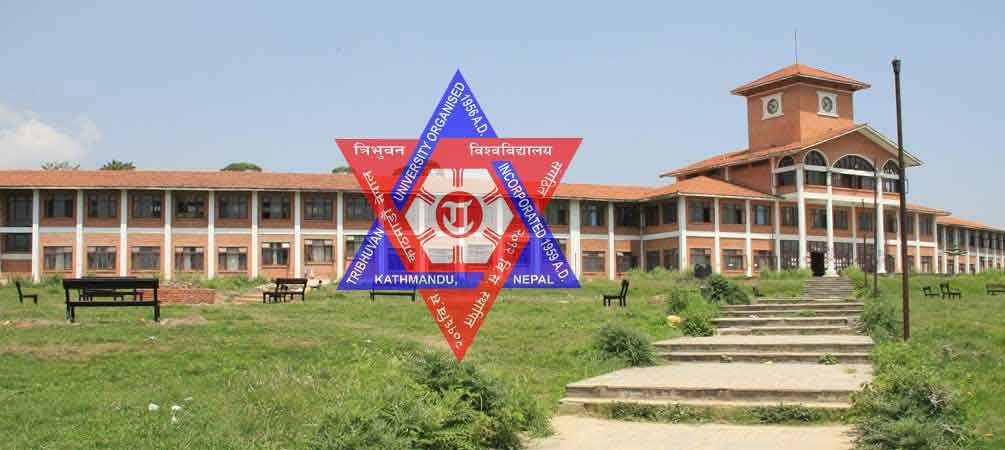
TU Students Demand Uniform Fee Structure Across Campuses
Tribhuvan University (TU) students are facing difficulties due to inconsistencies in fees charged under different headings across its constituent campuses. Even within the same university and for the same type of academic program, charges for examinations, admissions, teaching, library, ID cards, and other headings vary significantly.
For example, students pursuing a BSc in Geology at Tri-Chandra Campus are required to pay an annual fee ranging from NPR 8,000 to 9,000, while the same subject at Birendra Multiple Campus in Chitwan costs between NPR 50,000 and 60,000 annually. This is only one illustration of the issue.
The fee for ID cards also differs by department. Despite being a public university, such discrepancies in charges resemble those of private institutions. In response, the Free Student Union (FSU) of TU’s Central Campus has drawn the attention of university officials, demanding the formation of a fee reassessment committee based on scientific grounds.
FSU President Deepak Raj Joshi said that the inconsistencies in fees across TU’s campuses have placed additional financial burdens on students, causing mental stress. “The arbitrary fee determination by different departments is unacceptable to us,” he stated. According to him, “To bring uniformity in fees, a reassessment committee is indispensable, and FSU has submitted a memorandum to the Vice-Chancellor. TU has 43 central departments, 62 constituent campuses, and 1,056 affiliated campuses, but it has failed to monitor, regulate, and manage them. In such circumstances, arbitrary fee collection by TU’s own campuses and departments cannot be justified.” He warned that if TU does not form a scientific fee reassessment committee by Monday, the union will launch strong protests.
FSU Secretary Hikmat Kumar Budha also emphasized that TU should not reduce fees under pressure from certain organizations or protests but should determine fees scientifically and sustainably.
Recently, TU reached an agreement with the student wing All Nepal National Free Students Union (Revolutionary), affiliated with the Maoist Centre, to reduce fees in four departments. Executive Director of the Monitoring Directorate Bishnu Khanal and representatives of the agitating Revolutionary student union agreed to reduce fees for newly converted central departments from NPR 180,000 to NPR 110,000. The proposal will be discussed further in the upcoming Executive Council meeting.
These departments include International Relations and Diplomacy, Gender Studies, Social Work, and Conflict, Peace and Development Studies under the Faculty of Humanities and Social Sciences. Revolutionary student leaders had staged a sit-in outside the Vice-Chancellor’s office for 34 days, demanding adjustments, arguing that fees were on par with private institutions.
FSU Secretary Budha argued that the agreement with the Revolutionary student union should not be considered a complete solution. “Without forming a fee reassessment committee with FSU participation, it is impossible to resolve the fee issue through temporary compromises,” he said. He added that the decision to fix fees at NPR 110,000 in four departments without a scientific basis is unacceptable, as it further creates injustice for students. “For example, other subjects under the Faculty of Humanities cost only NPR 68,000,” he explained.
According to FSU President Joshi, ID card fees range from NPR 100 to 150, while registration and library fees are between NPR 500 and 1,000 depending on the department. He also raised concerns about irregularities in scholarship distribution. “For 30 years, the scholarship directive has not been updated in line with the times. Continuing to provide the same free scholarship to a single student in every semester without considering academic progress is unjust. This needs to be revised,” he said, warning that the union would launch protests if demands were not met by Monday.
Outgoing Executive Director of the Monitoring Directorate, Bishnu Khanal, noted that programs run through internal resources have maintained fees comparable to private institutions, placing additional financial burdens on students. He suggested that TU should conduct research and analysis to bring uniformity in fees. “Some constituent campuses run programs from internal resources, and the remuneration for subject experts must also be considered. Services and facilities provided to students are included in the fees, which explains the lack of uniformity,” he said. “Now, TU must conduct comprehensive studies of its departments and institutes to bring uniformity in fees.”
TU Vice-Chancellor Professor Dr. Deepak Aryal said that in the upcoming Executive Council meeting, he would propose the formation of a fee adjustment committee to ensure uniformity across all TU constituent campuses and departments. “Recently, the protests have ended, and TU is moving toward a peaceful and academic environment,” he said. “The fees agreed upon with the students for the four departments at NPR 110,000 will also be scientifically reviewed and adjusted. Similarly, the scholarship system, which has remained unchanged for three decades, will be thoroughly studied by the committee.”
He further added that with improved relations between students and teachers, TU is gradually moving toward becoming more academic in nature.
Published date: 2082-05-16
Tribhuvan University College News

